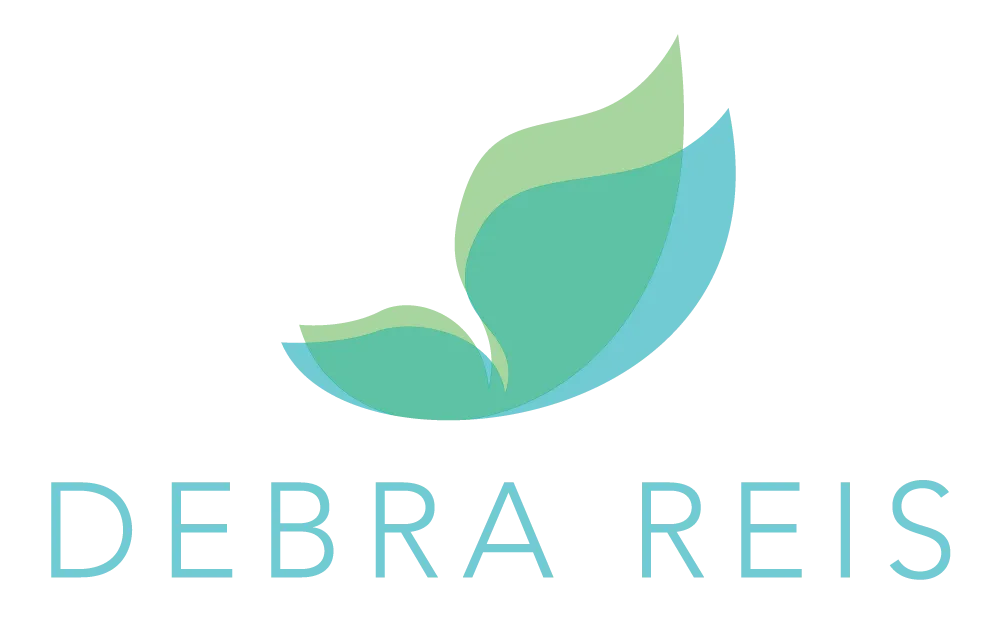BLOG
Supportive Therapies For Better Outcomes — Enrich Your Life Through Relaxation Techniques, Aromatherapy, and Gentle Movement.

Enhancing Nurse Recruitment and Retention Through Integrative Therapies
The healthcare industry constantly evolves, with an increasing demand for qualified nurses to provide high-quality patient care. However, nurse recruitment and retention have become significant challenges for healthcare institutions. One challenge is financial, with each RN replacement costing an organization an average of $50,000 per nurse. There are concerns about the remaining team's time and energy to train and educate without becoming more exhausted and burned out.
Integrative therapies, which combine conventional medical treatments with complementary approaches, are emerging as powerful tools in improving patient outcomes and attracting and retaining nursing professionals. There are several ways in which integrative therapies can support the recruitment and retention of nurses in healthcare settings.
The Nurse Recruitment and Retention Challenge
Nurse shortages have been reported worldwide, with the U.S. reporting 30% turnover. Many nurses leaving are younger and searching for alternative careers or jobs. These events lead to increased workloads, burnout, and decreased job satisfaction among remaining healthcare professionals. The challenges of long working hours, high-stress levels, and limited work-life balance contribute to nurses seeking alternative career options. Healthcare institutions need innovative strategies to attract and retain nursing staff to address this crisis.
Innovative Retention Strategies with Integrative Therapies

In a recent survey, over 70% of nurses stated they did not feel emotional support from their leadership and organization. Nurses of all ages wanted to feel respected and valued for their contribution to patient care. Healthcare administrators and leadership struggle with incentives for retention. Bonuses and pay increases have run their course. Other strategies must be incorporated for nurses to feel empowered and part of a cohesive team.
Integrative therapies encompass many practices, including yoga, meditation, acupuncture, massage therapy, and aromatherapy. These therapies focus on treating the whole person – physically, mentally, and emotionally – rather than just addressing isolated symptoms. Integrative therapies have gained popularity due to their potential to alleviate stress, anxiety, pain, and other physical and emotional issues. Currently, most organizations rely on Employee Assistant Programs, which are not meeting the needs of nurses in the clinical setting, where chaos and stress can be rampant.
Supporting Nurse Wellbeing with Supportive Therapy Engagement Program (S.T.E.P.)
Nurse well-being is crucial for both patient care and nurse retention. Integrative therapies offer nurses tools to manage stress, prevent burnout, and enhance their overall quality of life. Participating in mindfulness sessions, yoga classes, or regular massages can help nurses relax, reduce tension, and recharge, improving job satisfaction and higher retention rates.
These are great tools for work/life balance. But what can a nurse do when feeling stressed during the workday or after a traumatic event? The Supportive Therapy Engagement Program, or S.T.E.P., provides quick tools to empower nurses and quickly bring them to a place of balance.
S.T.E.P. provides various tools and resources that nurses and other healthcare providers can choose to assist balance and peace quickly and effectively. There are three pillars of S.T.E.P.: relaxation techniques, aromatherapy, and gentle movement therapies.

S.T.E.P. Resource Create a Positive Work Environment
Healthcare institutions prioritizing integrating complementary therapies found in S.T.E.P. are committed to creating a positive and supportive work environment. Nurses are more likely to stay with organizations that value their holistic well-being, fostering a sense of belonging and loyalty. Integrative therapies demonstrate that the institution cares about its employees as professionals and individuals with diverse needs.
Integrative therapies benefit nurses directly and contribute to enhanced patient-centered care. Nurses who are well-supported and less stressed can provide more attentive and compassionate care to their patients. Patients appreciate healthcare environments where their needs are met, and the staff exudes positivity and empathy.
In a competitive job market, healthcare institutions must stand out to attract top nursing talent. Organizations can differentiate themselves from other employers by offering integrative therapies as part of their benefits package. Potential recruits are more likely to choose institutions prioritizing employee well-being and offering comprehensive support beyond traditional healthcare benefits.
Long-Term Cost Savings
Investing in integrative therapies may seem like an additional expense initially, but it can lead to significant cost savings in the long run. By promoting nurse well-being, institutions reduce turnover rates, minimizing the costs associated with recruitment, training, and orientation of new staff. Additionally, healthier and more satisfied nurses will likely deliver better patient outcomes, reducing healthcare costs.
Integrative therapies offer a promising solution to nurse recruitment and retention challenges. By valuing nurses as whole individuals and addressing their physical, mental, and emotional needs, healthcare institutions can create a more supportive and appealing work environment. The integration of these therapies not only enhances nurse wellbeing but also improves patient care quality and supports the institution's long-term success in a competitive healthcare landscape.

This blog is provided for educational and informational purposes only and is not medical, mental health, or healthcare advice. Although Debra Reis is a Clinical Nurse Specialist licensed in the state of Michigan, she is not acting in that capacity here. Debra Reis is acting as a holistic educator and consultant, not as a licensed medical health professional or in her professional capacity as a Clinical Nurse Specialist. The information presented here is not intended to diagnose, treat, heal, cure or prevent any illness, medical condition, or mental or emotional condition. Working with us is not a guarantee of any results. Debra Reis, Wellness Services, LLC owns all copyrights to the materials presented here unless otherwise noted.

Enhancing Nurse Recruitment and Retention Through Integrative Therapies
The healthcare industry constantly evolves, with an increasing demand for qualified nurses to provide high-quality patient care. However, nurse recruitment and retention have become significant challenges for healthcare institutions. One challenge is financial, with each RN replacement costing an organization an average of $50,000 per nurse. There are concerns about the remaining team's time and energy to train and educate without becoming more exhausted and burned out.
Integrative therapies, which combine conventional medical treatments with complementary approaches, are emerging as powerful tools in improving patient outcomes and attracting and retaining nursing professionals. There are several ways in which integrative therapies can support the recruitment and retention of nurses in healthcare settings.
The Nurse Recruitment and Retention Challenge
Nurse shortages have been reported worldwide, with the U.S. reporting 30% turnover. Many nurses leaving are younger and searching for alternative careers or jobs. These events lead to increased workloads, burnout, and decreased job satisfaction among remaining healthcare professionals. The challenges of long working hours, high-stress levels, and limited work-life balance contribute to nurses seeking alternative career options. Healthcare institutions need innovative strategies to attract and retain nursing staff to address this crisis.
Innovative Retention Strategies with Integrative Therapies

In a recent survey, over 70% of nurses stated they did not feel emotional support from their leadership and organization. Nurses of all ages wanted to feel respected and valued for their contribution to patient care. Healthcare administrators and leadership struggle with incentives for retention. Bonuses and pay increases have run their course. Other strategies must be incorporated for nurses to feel empowered and part of a cohesive team.
Integrative therapies encompass many practices, including yoga, meditation, acupuncture, massage therapy, and aromatherapy. These therapies focus on treating the whole person – physically, mentally, and emotionally – rather than just addressing isolated symptoms. Integrative therapies have gained popularity due to their potential to alleviate stress, anxiety, pain, and other physical and emotional issues. Currently, most organizations rely on Employee Assistant Programs, which are not meeting the needs of nurses in the clinical setting, where chaos and stress can be rampant.
Supporting Nurse Wellbeing with Supportive Therapy Engagement Program (S.T.E.P.)
Nurse well-being is crucial for both patient care and nurse retention. Integrative therapies offer nurses tools to manage stress, prevent burnout, and enhance their overall quality of life. Participating in mindfulness sessions, yoga classes, or regular massages can help nurses relax, reduce tension, and recharge, improving job satisfaction and higher retention rates.
These are great tools for work/life balance. But what can a nurse do when feeling stressed during the workday or after a traumatic event? The Supportive Therapy Engagement Program, or S.T.E.P., provides quick tools to empower nurses and quickly bring them to a place of balance.
S.T.E.P. provides various tools and resources that nurses and other healthcare providers can choose to assist balance and peace quickly and effectively. There are three pillars of S.T.E.P.: relaxation techniques, aromatherapy, and gentle movement therapies.

S.T.E.P. Resource Create a Positive Work Environment
Healthcare institutions prioritizing integrating complementary therapies found in S.T.E.P. are committed to creating a positive and supportive work environment. Nurses are more likely to stay with organizations that value their holistic well-being, fostering a sense of belonging and loyalty. Integrative therapies demonstrate that the institution cares about its employees as professionals and individuals with diverse needs.
Integrative therapies benefit nurses directly and contribute to enhanced patient-centered care. Nurses who are well-supported and less stressed can provide more attentive and compassionate care to their patients. Patients appreciate healthcare environments where their needs are met, and the staff exudes positivity and empathy.
In a competitive job market, healthcare institutions must stand out to attract top nursing talent. Organizations can differentiate themselves from other employers by offering integrative therapies as part of their benefits package. Potential recruits are more likely to choose institutions prioritizing employee well-being and offering comprehensive support beyond traditional healthcare benefits.
Long-Term Cost Savings
Investing in integrative therapies may seem like an additional expense initially, but it can lead to significant cost savings in the long run. By promoting nurse well-being, institutions reduce turnover rates, minimizing the costs associated with recruitment, training, and orientation of new staff. Additionally, healthier and more satisfied nurses will likely deliver better patient outcomes, reducing healthcare costs.
Integrative therapies offer a promising solution to nurse recruitment and retention challenges. By valuing nurses as whole individuals and addressing their physical, mental, and emotional needs, healthcare institutions can create a more supportive and appealing work environment. The integration of these therapies not only enhances nurse wellbeing but also improves patient care quality and supports the institution's long-term success in a competitive healthcare landscape.

This blog is provided for educational and informational purposes only and is not medical, mental health, or healthcare advice. Although Debra Reis is a Clinical Nurse Specialist licensed in the state of Michigan, she is not acting in that capacity here. Debra Reis is acting as a holistic educator and consultant, not as a licensed medical health professional or in her professional capacity as a Clinical Nurse Specialist. The information presented here is not intended to diagnose, treat, heal, cure or prevent any illness, medical condition, or mental or emotional condition. Working with us is not a guarantee of any results. Debra Reis, Wellness Services, LLC owns all copyrights to the materials presented here unless otherwise noted.


